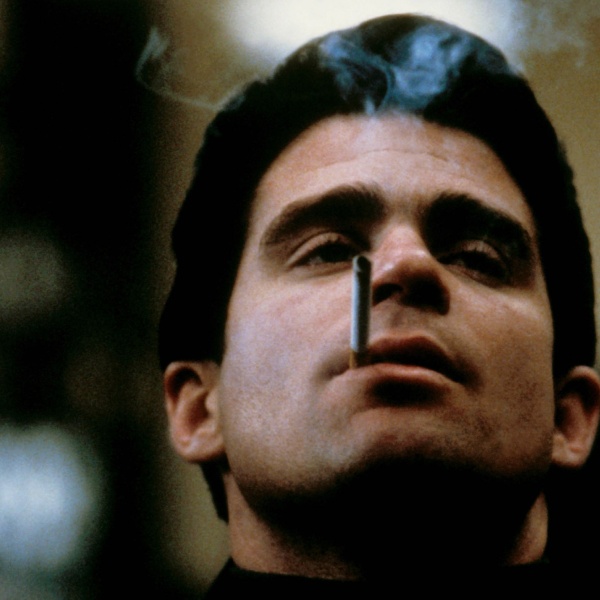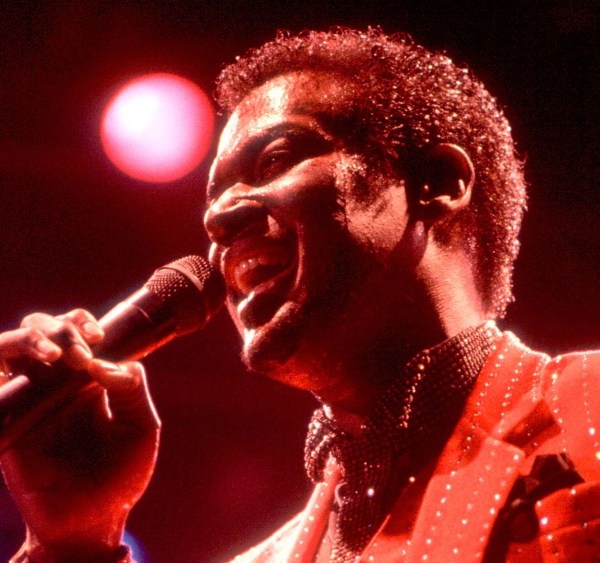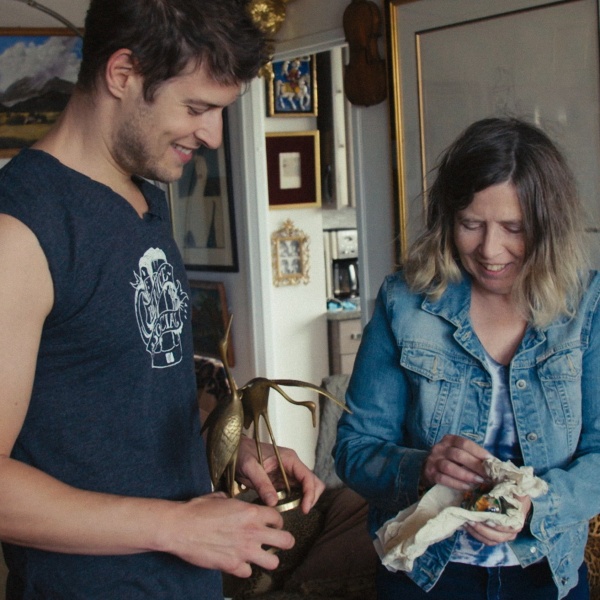
Before Simon (Théodore Pellerin) struts out on stage every night in his drag regalia, he prepares backstage by lip-syncing to Chaka Khan’s “I’m Every Woman.” His persona, Glory Gore, isn’t fully formed at this point — she’s only been half-painted into existence — but when Chaka belts out the lyrics to her signature anthem, something physically shifts within Simon as he begins to inhabit the words and the woman inside him alike. Although the other drag queens roll their eyes and tease Simon for always playing the same song each night, it’s not long before everyone joins him for a communal singalong that speaks to the uniquely queer connection these queens have bonded through.
Yet “Solo” isn’t so much about belonging as it is the desperate need to belong, and it’s this pain that Simon is forced to work through when his life twists into something happier (at first) with the arrival of a new drag colleague named Olivier (Félix Maritaud). But this isn’t a typical coming-of-age story or a typically romantic queer movie, either. For her third feature, Canadian writer/director Sophie Dupuis taps into something more fluid, much like queerness itself, that interweaves drag as artistry with the kind of toxic relationship dynamics that Fran Rogowksi brought to life so vividly last year in Ira Sachs’ “Passages.” And of course, what would any discussion of queer French-Canadian cinema in particular be without mention of Xavier Dolan, whose fixation on unhealthy mother/son dynamics is also echoed here, too.
Still, Dupuis is very much an auteur of her own making, as evidenced by 2019’s “Souterrain” and her first feature, “Chien de Garde,” which was selected as Canada’s submission for Best Foreign Language Film at the 91st Academy Awards. Each film is quite different in its own way, but the ongoing thread between them and “Solo” is Dupuis’ signature energy — it’s physically tangible in every scene of her latest feature, whether Simon is on or off stage.
Those two somewhat separate worlds begin to merge early on in “Solo” when the club recruits a new drag queen named Olivier, aka Dragona, who’s moved to Montreal from France for reasons he’s not quite willing to share. Simon pushes that small red flag aside when a romance soon begins to flourish between the pair. Shot lovingly by cinematographer Mathieu Laverdière, early encounters spark under the bisexual lighting of a sweaty, drug-fueled club night and then again when Simon and Olivier kiss outside under a swirl of rom-com driven snow. By the time they’re taking baths together and coming up with ways to combine their drag act on stage, you’d be forgiven for assuming this is all too good to be true.
And you’d be right. But what you might not expect is just how toxic Olivier becomes as his controlling tendencies emerge and seep their way into the relationship where he weaponizes Simon’s already fragile insecurities against him. What’s worse is that the couple are now inseparable. Not only have they combined their performances to much applause on stage, but Simon’s family and drag family have also welcomed Olivier with open arms, too, which is why it’s so easy for him to begin dismantling the support systems Simon has in place at work and at home as well. Simon’s sister Maude (Alice Moreault) has concerns, but Simon’s in too deep by this point, unwilling and unable to seek the help he needs.
In the press notes for “Solo,” Dupuis explains that she asked a psychologist to consult on the script so that she might better portray “the reasons why a person might allow themself to be mistreated by someone they love” and do so with “compassion” for everyone, including any “so-called ‘villains.’” That’s not to say Olivier isn’t awful, he truly is, and anyone who’s dated someone similar will physically recoil watching him manipulate Simon so cruelly, but it’s commendable how Dupuis humanizes him regardless. That also goes for Simon’s mother Claire (Anne-Marie Cadieux), a famous opera singer who essentially abandoned her children decades ago to tour the world, and in doing so caused a rift between the siblings, too. With Claire back in town, Simon naively hopes to reconnect, not fully realizing that he’s just another box to tick off on her endlessly busy to-do list. Or he does, but that desperate need to belong drives him to keep pushing on anyway.
Aspects of the plot do feel predictable, there’s no getting around that. But “Solo” is too smart of a film to be held back by contrivance. With nods to “All About Eve” and classic Douglas Sirk-style melodrama, the gradual unraveling and backstage backstabbing paints a picture of how the damage queer trauma leaves behind can shape us differently from person to person. Yet Dupuis never wallows in misery. Even in Simon’s worst moments, there’s joy to be found in his family’s love, mom aside, and also in the transformative power of drag, an art form which can be notoriously hard to convey authentically on screen. With help from ballroom choreographer Gerard X Reyes and local Montreal drag talent — including Marc-André Leclair, aka Tracy Trash — Dupuis has crafted a euphoric love letter to drag that skirts past cliche to instead celebrate the camaraderie of Simon’s sisterhood and how Simon himself draws strength from Glore Gore, his radiant alter ego. These central drag performances vibrantly portray the unstoppable energy of queer nightlife, drawing conflict from interpersonal dynamics rather than homophobia or prejudice, which thankfully never rear their heads here. And none of it would work as well as it does without some exceptional casting.
In his third collaboration with Dupuis, Pellerin fearlessly commits to Simon’s dual personas, organically threading them together without it ever feeling like he’s putting on a mask. Except when Simon himself pretends to be OK while his life spirals ever further out of sorts. Learning that Dupuis involved Pellerin in the scripting process early on makes complete sense when you see just how effortlessly he inhabits the role in a bonafide star-making turn. That’s just as true of his triumphant turns on stage playing Glory Gore as it is when the sadness slowly creeps in after Simon steps off stage and back behind the curtain. Where there was once only confidence, self-doubt and regret now surface. Towards the end of the film, Simon can hardly recognise himself anymore, and it’s a credit to everyone involved that we can recognize this in him already after only knowing the character for such a short time.
There’s vulnerability in Félix Maritaud’s portrayal of Olivier, too, albeit in a very different way. Off the back of “Sauvage,” “Knife + Heart,” and “120 BPM (Beats Per Minute),” Maritaud continues to establish himself as one of French cinema’s most charismatic performers with an endlessly seductive turn that shifts from impish to malevolent without ever losing sight of why Simon would be attracted to Olivier in the first place. There’s a weariness there, too, the kind that comes from always battling the world around you, which goes some way to explaining Olivier’s selfish, narcissistic behavior without spelling it out for us unnecessarily.
By the end, Glory Gore defiantly forges a new path to the sound of Perfume Genius’ “Queen,” yet it’s Chaka Khan’s “I’m Every Woman” that perhaps best represents this new Simon still. By learning to prioritize himself and love himself without yearning for an acceptance that may never come, Simon is reborn as the “every woman” that all of us should aspire to be, and we hope to do so just as fabulously.
Grade: A-
“Solo” is now playing in theaters from Music Box Films.




